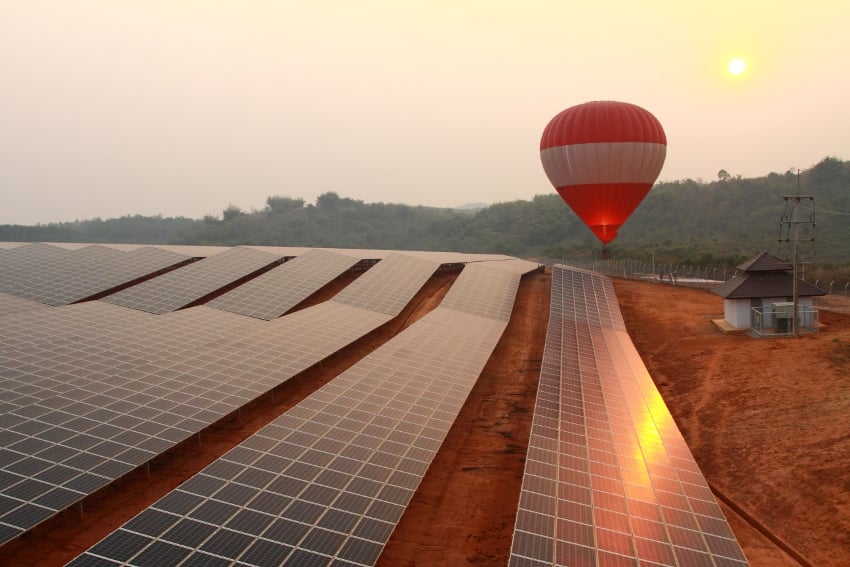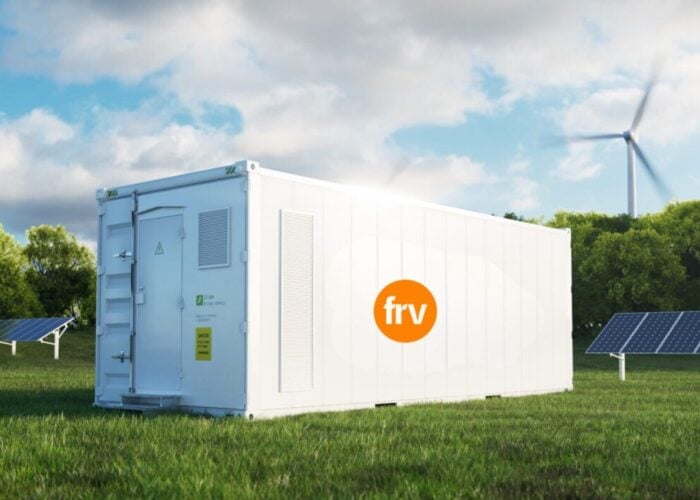
Joining the European Energy Exchange (EEX) will help curb counterparty risks as lockdowns worldwide send power prices plummeting, Sonnedix has told PV Tech.
The firm recently walked this publication through the rationale behind its decision to become the first solar independent power producer (IPP) on the Leipzig-based venue, which various players use to trade power derivatives, mineral and agricultural commodities and others.
Try Premium for just $1
- Full premium access for the first month at only $1
- Converts to an annual rate after 30 days unless cancelled
- Cancel anytime during the trial period
Premium Benefits
- Expert industry analysis and interviews
- Digital access to PV Tech Power journal
- Exclusive event discounts
Or get the full Premium subscription right away
Or continue reading this article for free
A spokesperson from Sonnedix – a firm with 1GW of operational solar across Europe, America, Africa and Asia – pointed out that the use of venues such as EEX or bilateral PPAs to hedge “small portions” of merchant exposures predates the COVID-19 outbreak.
Quizzed over why the firm had joined the EEX this year, with the pandemic triggering a plunge of power prices, the spokesperson said however the move is a “very appropriate solution” in what they described as the “current global situation”.
Noting that EEX is Europe’s largest power exchange, the spokesperson said: “Entering into EEX would allow Sonnedix to trade with a rising number of counterparties that would be difficult to get via bilateral conversations.”
“Also, by gaining direct access to the market, Sonnedix will be able to hedge merchant exposures in a transparent and efficient way with shortened negotiation times,” they explained. “Another reason to join EEX is the fact that hedging in a Clearing House reduces counterparty risks considerably.”
The arrival to EEX finds Sonnedix after a year of global solar growth. With offices in five European countries, mainland US, Puerto Rico, Chile, Japan and South Africa, the IPP controls a 1.87GW portfolio worldwide, with 407MW under construction and 429MW under development.
The firm – majority-owned by US investor J.P. Morgan Asset Management – saw last year the closing of a US$283 million corporate facility, portfolio purchases in Italy and France, the ground-breaking of a 171MW PV plant in Chile and others. In March, it brought 39MW of PV online in Japan.
Power price plunge steals shine off bullish subsidy-free solar scene
Analysis by José Rojo, senior reporter, PV Tech
For European solar, the onset of the COVID-19 crisis has come to disrupt one particular segment that has hoarded some of the most recent industry spotlight.
In conferences and one-on-one interviews last year, the talk was of the success story of subsidy-free solar; the triumph of free-market developments precisely in those countries – Spain, Italy – where deployment had been brought to a halt by swings of subsidy policies.
Solar Media events showed industry players were not blinded to the challenges, from the dominance of big players to the risk of grid bottlenecks. But the consensus was that merchant solar was here to stay in Europe, a key growth pillar for markets facing steep growth targets.
Factor in COVID-19, and the picture looks markedly less buoyant. The lockdown measures enacted by countries fighting the pandemic have hit subsidy-free solar where it hurts, and sent power prices tumbling into levels sometimes not seen for years.
The ghost of cannibalisation loomed before the outbreak but the risks have become more real. In Spain and Italy, the talk now is of financiers closing the taps as low power prices hurt the business case of merchant-reliant solar ventures.
As José Donoso, general director of Spanish PV body UNEF, said this month: “The banks will be more conservative given the impact of these low prices. The financial conditions will be worse, and this is the aspect from COVID-19 that can impact most significantly the future of utility-scale plants.”
The risks extend to subsidised projects. As recently reported, solar firms in the Netherlands were recently reminded that state support would not flow during extended periods of negative power prices. The cut-off is mandated by EU law when sub-zero prices last for more than six hours.
If recent reports are anything to go by, this is a reality European solar might have to learn to live with for a while. Based on a review by UK-based Aurora Energy Research, tumbling wholesale power prices throughout Europe may not fully recover until 2025.
Only time can tell whether other solar IPPs will follow in Sonnedix’s footsteps and try and curb the risks by resorting to EEX-based hedging. As EEX’s COO Steffen Köhler said in a prepared statement, the move could bring “valuable risk management tools” to merchant-wary firms.
PV Tech has set up a dedicated tracker to map out how the COVID-19 pandemic is disrupting solar supply chains worldwide. You can read the latest updates here.
If you have a COVID-19 statement to share or a story on how the pandemic is disrupting a solar business anywhere in the world, do get in touch at [email protected] or [email protected].






